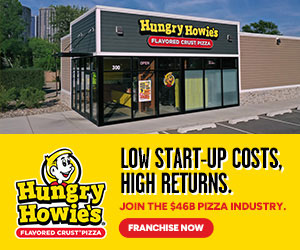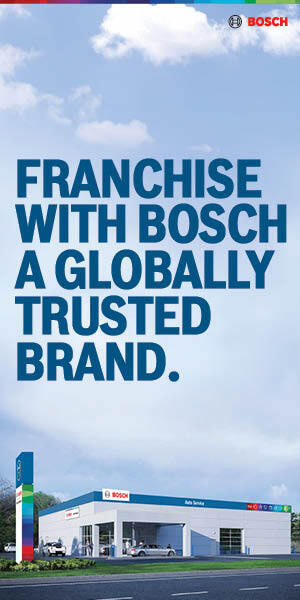Why Service-Based Franchise Concepts Are a Smart, Tariff-Proof Bet in a Volatile Market

As multi-unit franchisees look for growth opportunities in an unpredictable economic landscape, the ripple effects of global trade policies are becoming harder to ignore. While tariffs may feel like an issue for product-heavy businesses or global conglomerates, they can significantly impact unit economics across many retail segments, especially those reliant on imported goods.
However, not all franchises are created equal when it comes to exposure. Service-based, experiential franchises—those that provide activities, entertainment, or personal services—offer a resilient and often overlooked hedge against the volatility of trade-related costs.
Why tariffs hit product-centric franchises hardest
Tariffs are, at their core, taxes on imports. For franchises that rely on goods manufactured overseas—be it fitness equipment, furniture, apparel, or electronics—tariffs can lead to increased costs, squeezed margins, and ultimately, higher prices for consumers. These price hikes can reduce demand, impact brand perception, and complicate expansion plans.
Add to that the current global uncertainty, and product-dependent franchise concepts may find themselves in a holding pattern. Inventory planning becomes a guessing game, and shipping delays only exacerbate the risk.
The tariff-proof advantage of experiential models
By contrast, service-based, experiential franchise models are rooted in delivering in-person, non-exportable value. Whether it’s a fitness class, an interactive play zone, a beauty service, or a trampoline park experience, the “product” is the experience itself and not something that can be sourced from overseas.
This model minimizes reliance on foreign supply chains. Initial buildouts may involve some materials or equipment, but ongoing operations don’t require constant replenishment of tariff-exposed goods. As a result, these businesses enjoy more predictable operating costs and fewer pricing shocks from global trade swings.
From my vantage point leading franchise development at Altitude Trampoline Park, I’ve seen firsthand how this kind of model has become increasingly attractive to investors. Our growth, even during uncertain times, demonstrates that families will continue to seek out immersive, active experiences that can’t be delivered in a box or bought online.
The demand for shared, in-person experiences isn’t going anywhere
Consumer behavior continues to lean toward shared, social experiences—especially those that are active, tech-enhanced, and family-friendly. This shift isn’t just a pandemic rebound. It is a structural evolution in how people spend their disposable income.
For franchisees, this means an opportunity to build community-centered businesses that thrive regardless of global trade shifts. While retail brands may battle e-commerce and inventory headaches, service-based models capitalize on human connection and interaction—two things that no shipping delay or tariff can impact.
What to consider when investing in a tariff-resilient brand
If you're considering expansion into a service-based franchise, ask these key questions:
- Does the business model rely heavily on imported goods or ongoing international supply chains?
- Is the “product” a local, in-person service that can’t be digitized or drop-shipped?
- Are there multiple revenue streams that diversify risk (e.g., memberships, packages, events)?
- Does the concept meet a growing consumer demand for experience over goods?
These questions can help you evaluate whether a brand is well-positioned to weather economic shifts, and whether it offers the kind of operational stability that today’s franchise investors crave.
In a world where trade policies can change overnight, franchise concepts that prioritize services over goods offer a level of protection and predictability that’s becoming increasingly valuable. For multi-unit operators looking to future-proof their portfolios, experiential, service-based models represent not just a smart bet, but a resilient foundation for long-term growth.
Robert Morris is vice president of development for Indoor Active Brands.
Share this Feature
Recommended Reading:
| ADVERTISE | SPONSORED CONTENT |
FRANCHISE TOPICS
- Multi-Unit Franchising
- Get Started in Franchising
- Franchise Growth
- Franchise Operations
- Open New Units
- Franchise Leadership
- Franchise Marketing
- Technology
- Franchise Law
- Franchise Awards
- Franchise Rankings
- Franchise Trends
- Franchise Development
- Featured Franchise Stories
| ADVERTISE | SPONSORED CONTENT |

$200,000





 The multi-unit franchise opportunities listed above are not related to or endorsed by Multi-Unit Franchisee or Franchise Update Media Group. We are not engaged in, supporting, or endorsing any specific franchise, business opportunity, company or individual. No statement in this site is to be construed as a recommendation. We encourage prospective franchise buyers to perform extensive due diligence when considering a franchise opportunity.
The multi-unit franchise opportunities listed above are not related to or endorsed by Multi-Unit Franchisee or Franchise Update Media Group. We are not engaged in, supporting, or endorsing any specific franchise, business opportunity, company or individual. No statement in this site is to be construed as a recommendation. We encourage prospective franchise buyers to perform extensive due diligence when considering a franchise opportunity.